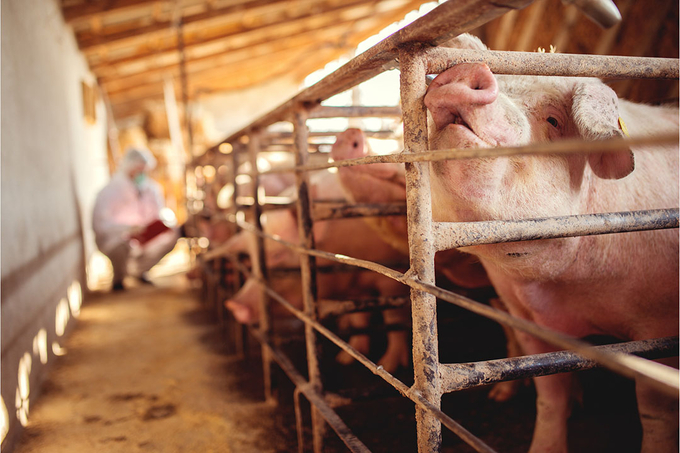June 18, 2025 | 06:40 GMT +7
June 18, 2025 | 06:40 GMT +7
Hotline: 0913.378.918
June 18, 2025 | 06:40 GMT +7
Hotline: 0913.378.918

Photo: Canva
Alexander Shipulin, chairman of the Russian union of peasant farms in Krasnodar Krai, spoke about the outbreaks to local newspaper Izvestia. He also warned that outbreaks could trigger a 20% hike in domestic pork prices. “The situation is dramatic because it is the country’s food security on the line here. Undoubtedly, prices are going to head up as the internal market starts experiencing a shortage.”
He also assumed that the pork market could face turbulence, similar to that seen in the fuel market in the past few weeks, as sales to foreign customers appeared to be more economically feasible than doing business on the home ground.
A different view about the events, however, was shared by the Russian Union of Pork Producers (RUPP). In the local publication Veterinary Life, Yuri Kovalev, RUPP chairman, said, “The statement that pork prices may rise by 10-20% in Russia due to ASF are groundless.” He estimated that the loss of 23,000 head of pigs is equal to only 3,000 tonnes of pork in live weight. This amount is not comparable to the production rise the Russian pig industry is boasting of this year.
Owing to several new farms, pork production this year has already grown by 200,000 tonnes, Kovalev said. By the end of the year, Russian pork production is expected to exceed 6 million tonnes.
“The development of the ASF situation in the Krasnodar Krai is surely troubling, but all outbreaks have been localised, and all quarantine measures have been implemented. ASF outbreaks could lead only to a temporary local shortage in certain regions. However, usually, the imbalance is swiftly compensated with a supply of pork from ASF-free territories.”
In a follow-up statement, the peasant farms’ union agreed with RUPP’s point of view. “The union held additional consultations with industry participants and noted that prices for pork at the wholesale level are stable and even are going down.”
(PP)

(VAN) Extensive licensing requirements raise concerns about intellectual property theft.

(VAN) As of Friday, a salmonella outbreak linked to a California egg producer had sickened at least 79 people. Of the infected people, 21 hospitalizations were reported, U.S. health officials said.

(VAN) With the war ongoing, many Ukrainian farmers and rural farming families face limited access to their land due to mines and lack the financial resources to purchase needed agricultural inputs.

(VAN) Vikas Rambal has quietly built a $5 billion business empire in manufacturing, property and solar, and catapulted onto the Rich List.

(VAN) Available cropland now at less than five percent, according to latest geospatial assessment from FAO and UNOSAT.

(VAN) Alt Carbon has raised $12 million in a seed round as it plans to scale its carbon dioxide removal work in the South Asian nation.

(VAN) Attempts to bring down the price of the Japanese staple have had little effect amid a cost-of-living crisis.